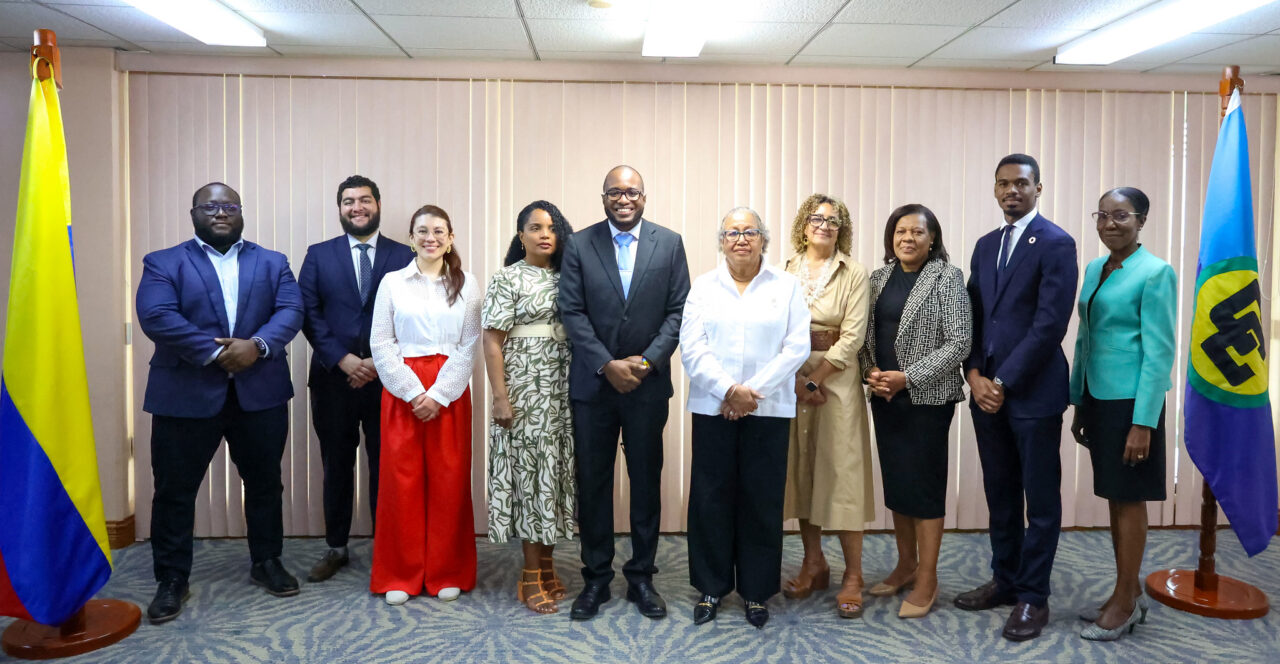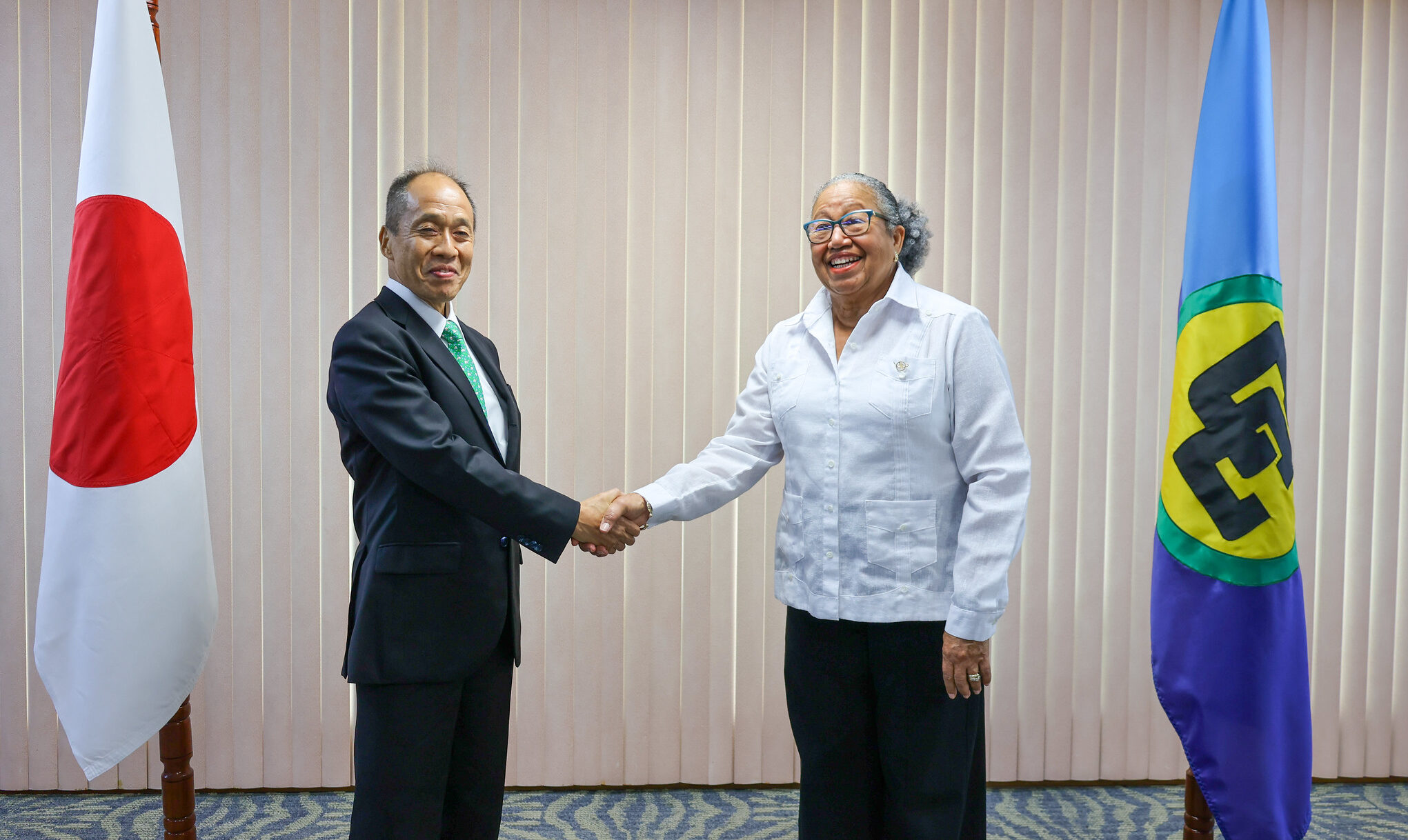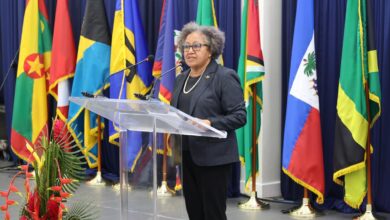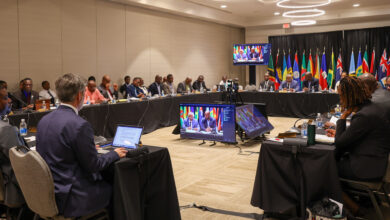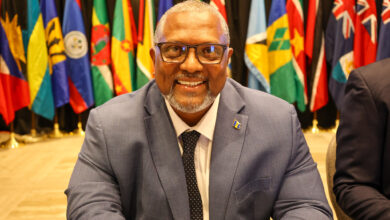The governments of Japan, and the Republic of Colombia have appointed new Ambassadors to the Caribbean Community (CARICOM). The accreditation ceremonies took place on Tuesday, July 1, at the CARICOM Secretariat in Georgetown, Guyana.
CARICOM Secretary-General accepted the Letter of Credence from the new Ambassador of Japan to CARICOM, His Excellency Dr. UMEZAWA Akima noting that the CARICOM Secretariat headquarters, funded by Japan, stands as a testament to the enduring strength of CARICOM-Japan relations.
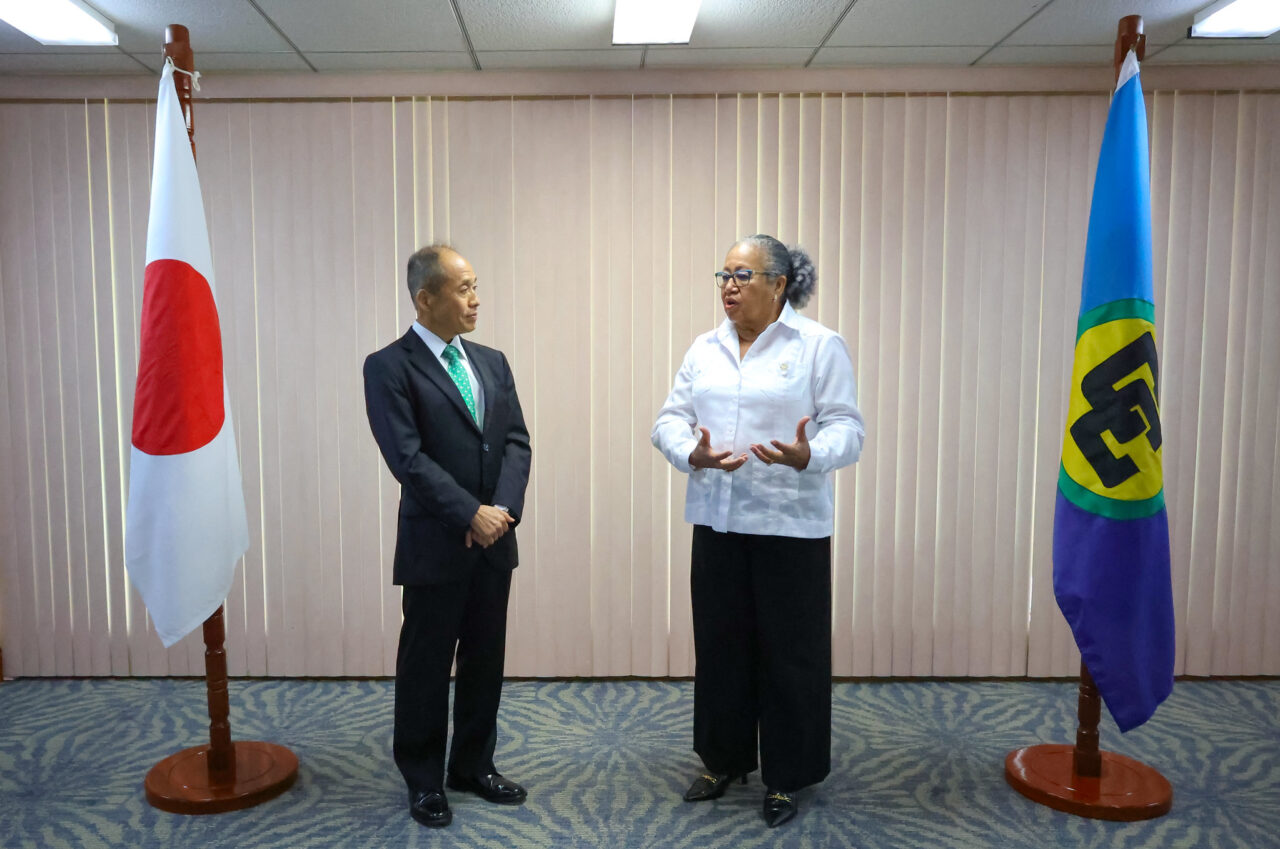
“Since establishing formal diplomatic ties in 1993, Japan has been a vital partner to the Community,” the Secretary-General noted, as she expressed optimism for continued strong relations during Ambassador Akima’s tenure.
The new Japanese envoy conveyed greetings from His Majesty Emperor Naruhito, who extended Japan’s best wishes and interest in maintaining and further promoting robust relations with CARICOM.
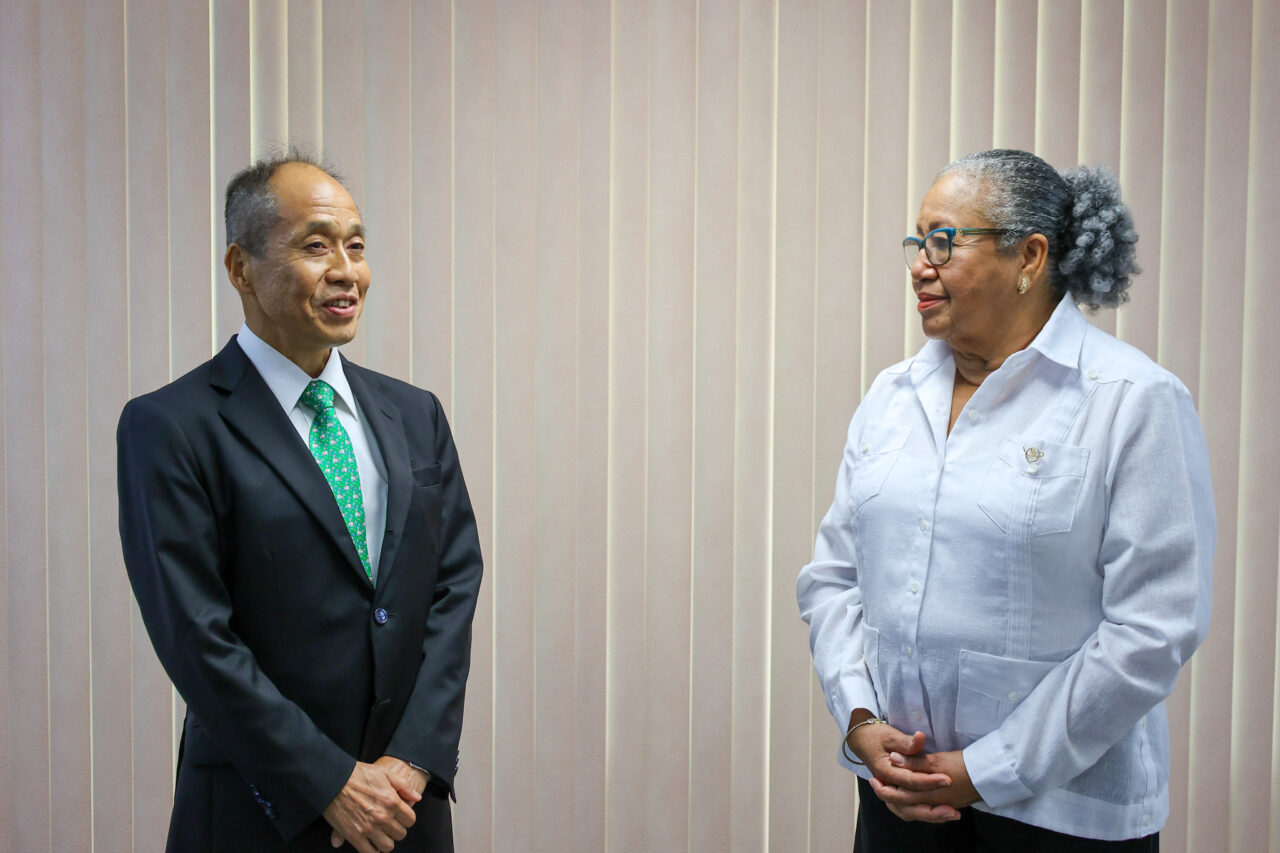
Ambassador Akima said that Japan’s commitment to CARICOM is demonstrated through support for green initiatives such as the photovoltaic power generation and building energy management system it funded at the CARICOM Secretariat, high-level engagements at the Heads of Government and Ministerial levels, as well as people-to-people connection. He pledged to continue fostering this strong relationship during his tenure.
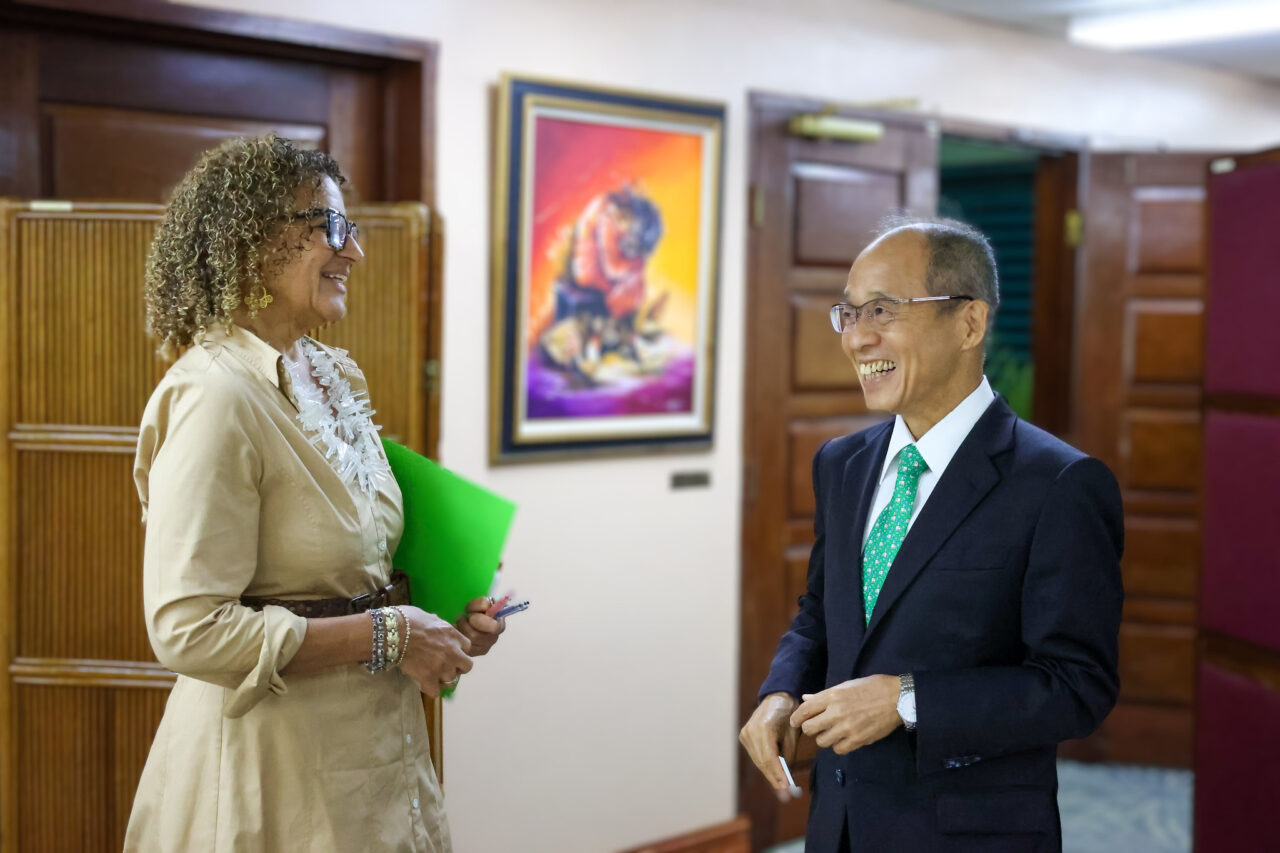
As she accredited the new Ambassador of Colombia to CARICOM, His Excellency Graybern Livingston Forbes, Dr. Barnett underscored the deep commitment CARICOM and Colombia place in their long-standing relationship.
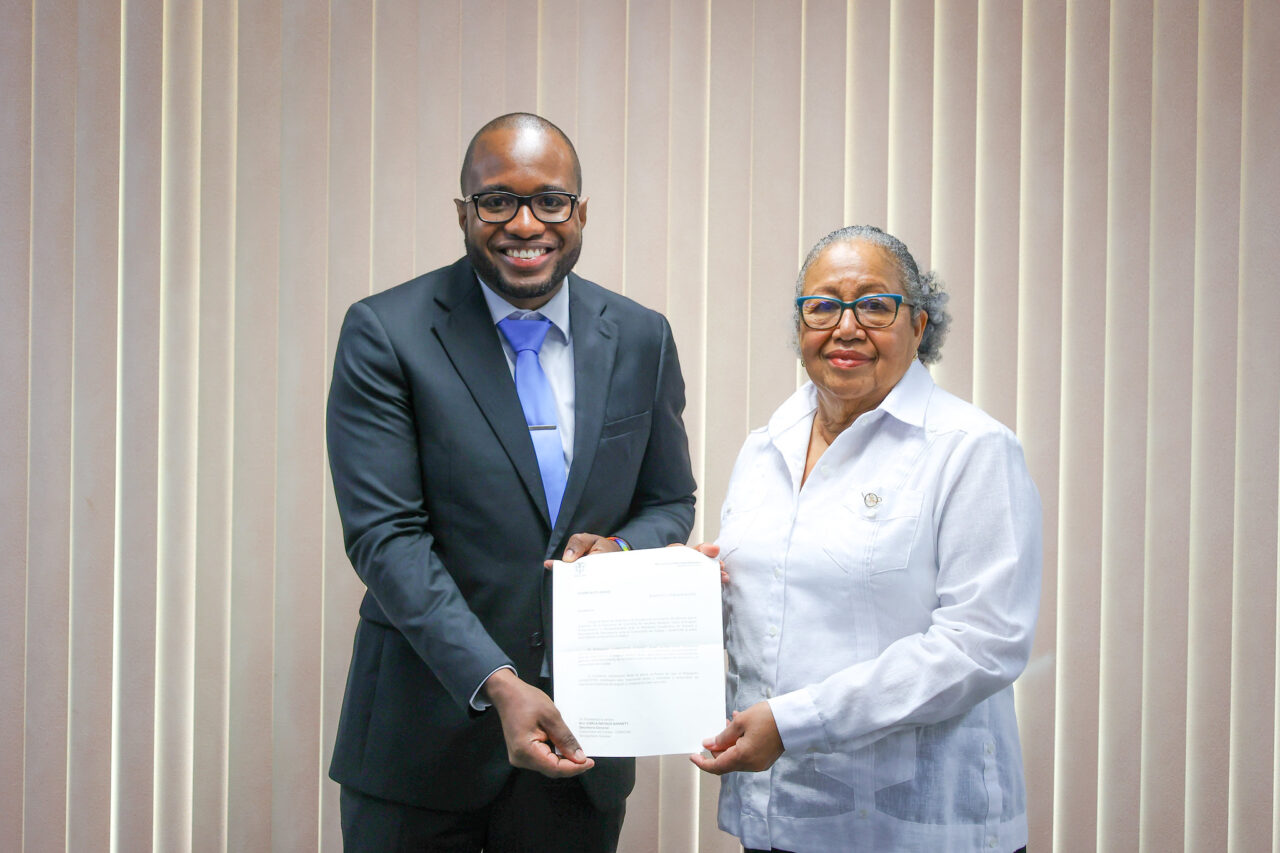
“This is particularly important in these times of global uncertainty, which demand even greater collaboration between nations with mutual interests and developmental aspirations,” she stated.
The Secretary-General expressed appreciation for Colombia’s support on critical issues for Small Island and Low-lying Coastal Developing States (SIDS), such as climate change. She emphasised the importance of stronger global efforts to cap temperature rise at 1.5°C and noted Colombia’s role in amplifying this call.
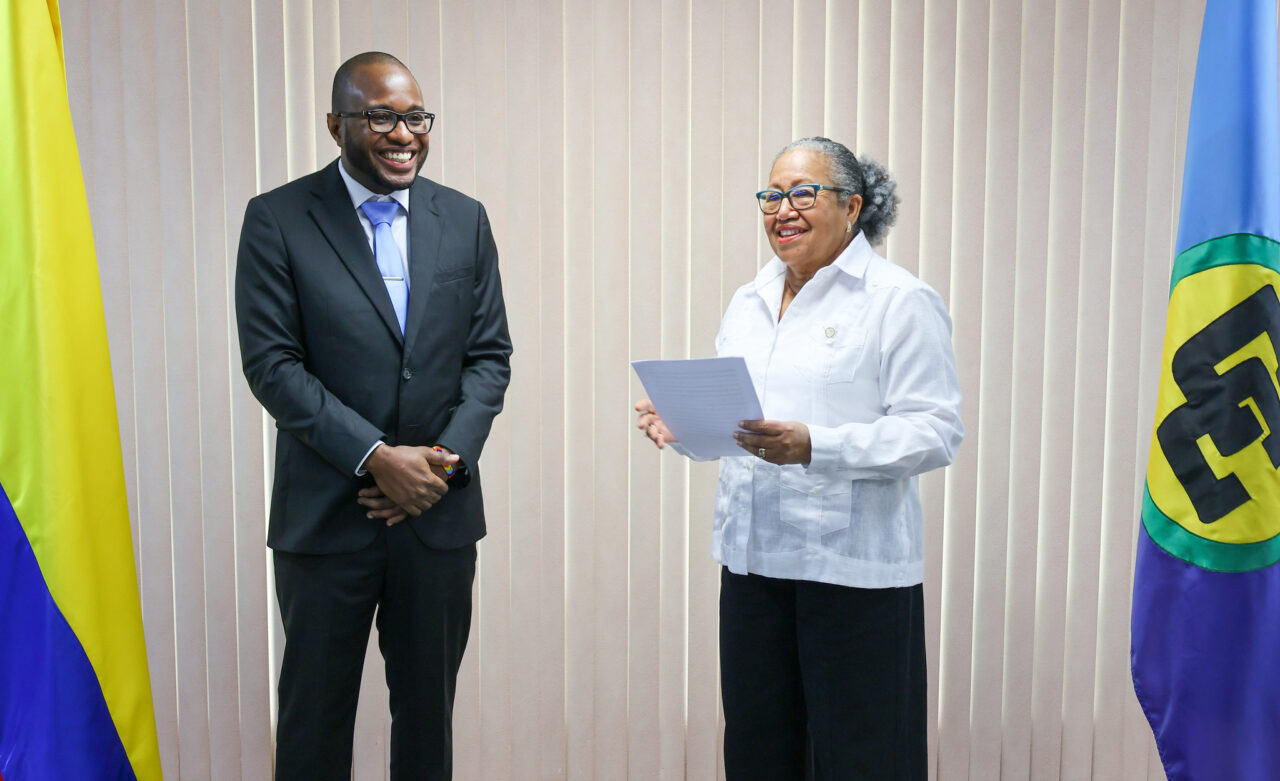
Highlighting the success of collaboration between CARICOM and Colombia, Dr. Barnett pointed out the Barranquilla Declaration (2022), which outlines joint priorities in trade, tourism, security, agriculture, human development, culture, and sports.
“We remain interested in furthering these priorities through the CARICOM-Colombia Joint Commission on Technical Cooperation, as well as the other areas identified in the First and Second Cooperation Programmes, with emphasis on the environment, education, sustainable agriculture, disaster resilience, and security.”
Noting the progress CARICOM and Colombia are making in the negotiations for enhanced market access under the 1994 Trade, Economic, and Technical Cooperation Agreement, she expressed optimism that those negotiations will conclude this year, to open up new avenues for trade.
Mr. Forbes recalled the recent Third CARICOM-Colombia Ministerial Summit in Cartagena, noting that it marked a significant step in strengthening collaboration and resulted in key agreements on sustainable development and climate change mitigation.
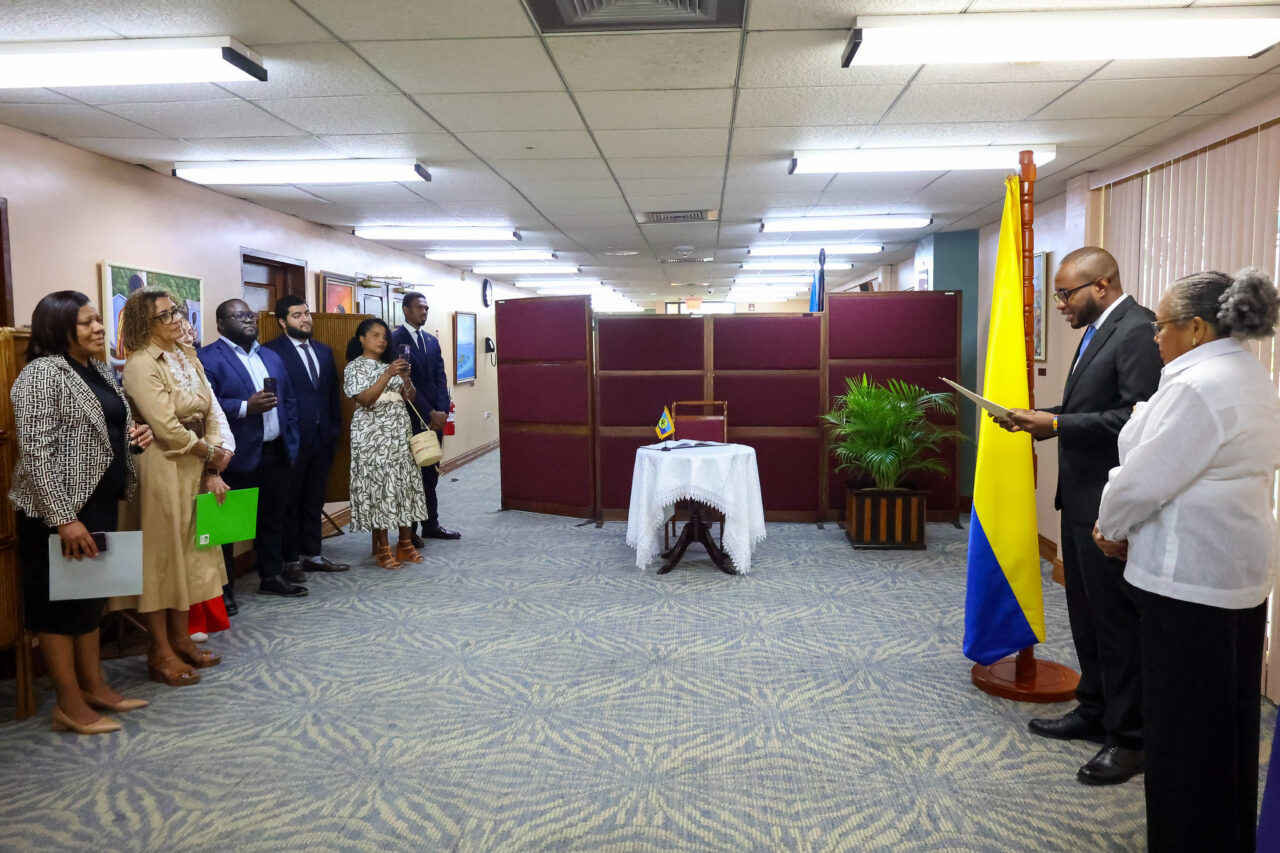
The reopening of the Colombian Embassy in Guyana, as well as those in Barbados, Jamaica, and Trinidad and Tobago, he said, symbolises the country’s deep and growing commitment to the region.
“This presence becomes even more meaningful at a time when solidarity and friendship are essential to addressing global challenges—especially those that affect the Global South,” Mr. Forbes said.
The Ambassador, who hails from the Colombian archipelago of San Andrés, Providencia, and Santa Catalina, reflected on the rich historical, cultural, and geographical connections San Andrés shares with the Caribbean islands.
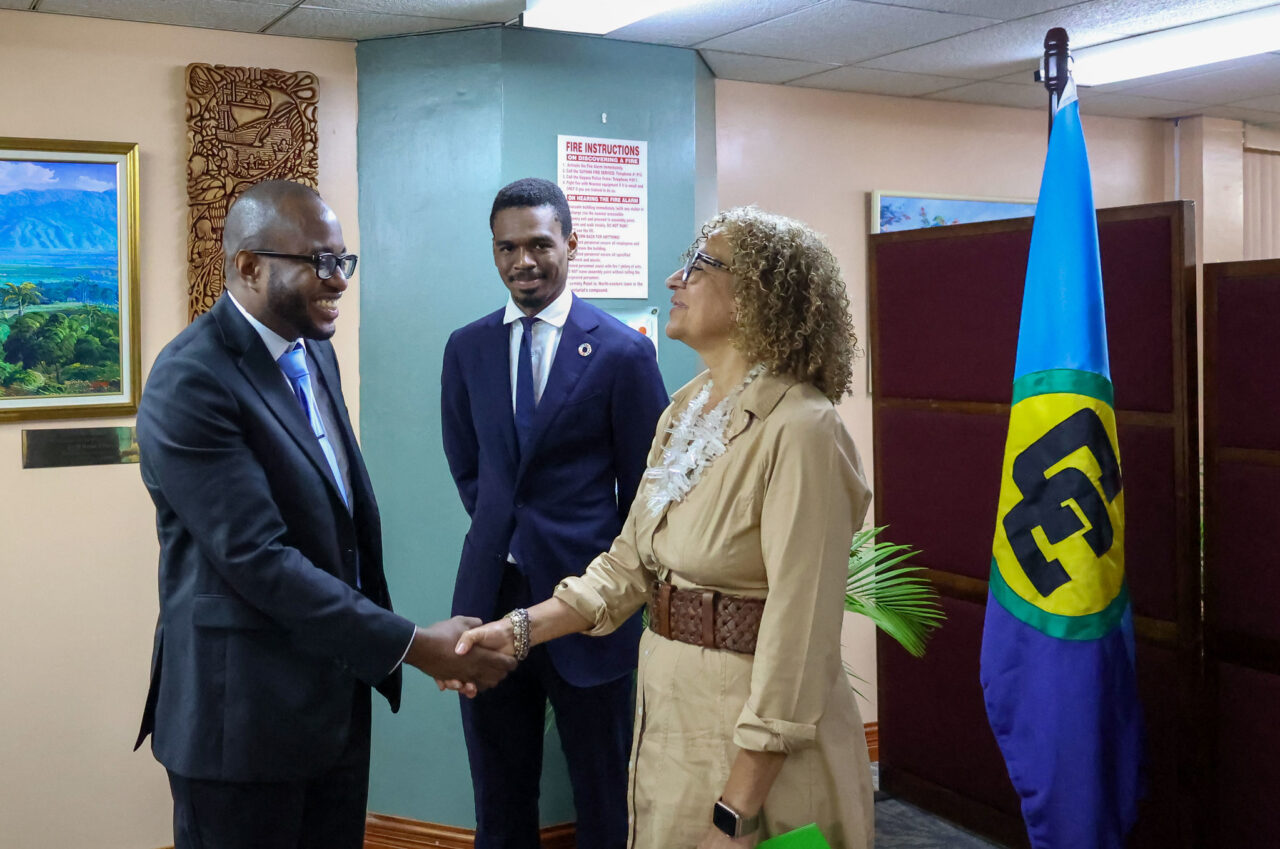
He recounted his first visit to Guyana, where he felt a profound sense of familiarity and recalled Cuban philosopher Antonio Benítez-Rojo’s book, The Repeating Island, which describes the Caribbean as a space where, despite its fragmentation and diversity, patterns emerge and repeat across geography and time.
“This idea resonated deeply with me. Yet it was only after visiting Guyana that I truly understood its meaning. I felt at home in every corner of Guyana—the people, the neighbourhoods, the music. Everything felt familiar,” Ambassador Forbes explained.
